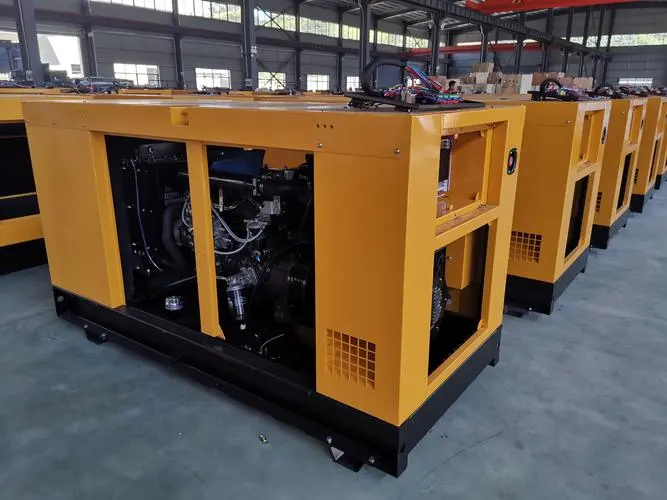Introduction
In the field of engineering, vibration testing plays a crucial role in ensuring the reliability and safety of various products and structures. One of the key components used in vibration testing setups is the diesel generator. Diesel generators are reliable and efficient power sources that provide the necessary energy for driving vibration testing equipment. In this article, we will explore the importance of diesel generators in vibration testing, their key features, benefits, and considerations for selecting the right generator for your testing needs.
Importance of Diesel Generators in Vibration Testing
Vibration testing is essential for assessing the structural integrity, durability, and performance of products such as automobiles, aerospace components, electronic devices, and industrial machinery. By subjecting these products to controlled vibrations, engineers can identify potential weaknesses, design flaws, and areas for improvement. To conduct accurate and reliable vibration tests, a stable and consistent power source is required. Diesel generators are well-suited for this purpose due to their robustness, reliability, and ability to provide a continuous power supply even in remote locations or during power outages.

Key Features of Diesel Generators for Vibration Testing
1. 150kw diesel generator for remote mining sites : Diesel generators are designed to withstand harsh operating conditions, making them ideal for use in vibration testing environments where consistent power supply is critical.
2. High Power Output: Diesel generators are capable of delivering high power outputs, ensuring that vibration testing equipment such as shakers and accelerometers receive the necessary energy to perform tests accurately.
3. Fuel Efficiency: Diesel generators are known for their fuel efficiency, which is essential for prolonged testing sessions that require continuous power supply without interruptions.
4. Low Maintenance: Diesel generators require minimal maintenance compared to other types of power sources, reducing downtime and ensuring reliable operation during vibration testing procedures.
5. Remote Monitoring Capabilities: Many modern diesel generators come equipped with remote monitoring features that allow engineers to monitor the generator's performance, fuel levels, and maintenance schedules from a central control station.
Benefits of Using Diesel Generators for Vibration Testing
1. Reliability: Diesel generators are highly reliable and can provide continuous power supply for extended periods, ensuring uninterrupted vibration testing sessions.
2. Versatility: Diesel generators can be used in a wide range of applications and environments, making them versatile power sources for vibration testing setups.
3. Cost-Effectiveness: While diesel generators may have a higher initial investment cost compared to other power sources, their long-term operational efficiency and low maintenance requirements make them a cost-effective choice for vibration testing applications.
4. Portability: Diesel generators are portable and can be easily transported to different testing locations, providing flexibility and convenience for engineers conducting vibration tests in various settings.
Considerations for Selecting a Diesel Generator for Vibration Testing
When choosing a diesel generator for vibration testing, several factors should be taken into consideration to ensure optimal performance and compatibility with the testing equipment. Some key considerations include:
1. Power Output: Determine the power requirements of your vibration testing equipment to select a diesel generator with the appropriate power output capacity.
2. Fuel Efficiency: Opt for a diesel generator with high fuel efficiency to minimize operational costs during prolonged testing sessions.
3. Noise Levels: Consider the noise levels generated by the diesel generator, especially if testing is conducted in a controlled environment where noise pollution must be kept to a minimum.
4. Maintenance Requirements: Choose a diesel generator with low maintenance requirements to reduce downtime and ensure continuous operation during vibration testing procedures.
5. Remote Monitoring Features: Look for diesel generators with remote monitoring capabilities to enable real-time tracking of performance metrics and maintenance schedules.
Conclusion
Diesel generators play a crucial role in vibration testing by providing a reliable and efficient power source for driving testing equipment such as shakers and accelerometers. Their robust construction, high power output, fuel efficiency, and low maintenance requirements make them an ideal choice for vibration testing setups in various industries. By considering factors such as power output, fuel efficiency, noise levels, maintenance requirements, and remote monitoring features, engineers can select the right diesel generator to meet their vibration testing needs effectively. Overall, diesel generators are essential components of vibration testing systems, ensuring accurate and reliable assessment of product performance and structural integrity.
